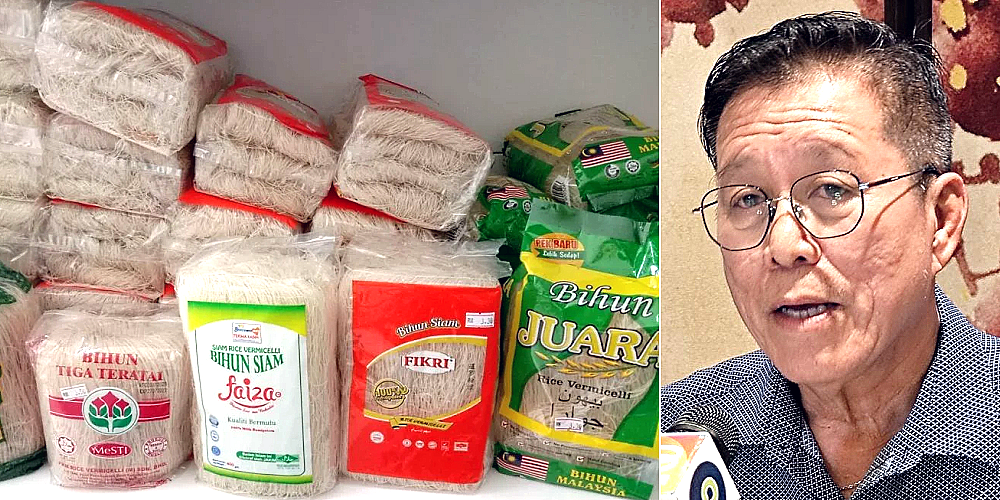PENANG: Due to the shortage of rice flour, domestic rice flour manufacturers are revising the price of bee hoon or rice vermicelli upward by 20 percent or RM1 per kilogram with immediate effect, as their cost has gone up by 30 percent.
Bee Hoon Manufacturers Association of Malaysia president Datuk Ang Cho Teing said manufacturers are forced to use rice instead of broken rice due to the shortage.
As white rice is more expensive than broken rice, manufacturers face an increase in cost by about 30 percent, he explained.
If the shortage of broken rice is not solved, many rice flour manufacturers may have to stop producing bee hoon within one month’s time, he said.
The shortage of broken rice has persisted for six months now, but the situation has deteriorated in the last three months, he added.
Ang said currently the broken rice stock may only last for another month of production.
There are a total of 18 manufacturers producing between 3,000 and 5,000 tons of bee hoon each month, he explained.
Based on the permits issued to rice flour manufacturers, they are not allowed to buy rice.
Due to the shortage of broken rice, the manufacturers are forced to use rice to produce bee hoon.

Ang Cho Teing: Bee hoon manufacturers have to resort to using white rice which is 30 percent more expensive, due to the shortage of broken rice.
“The government enforcement agency is exercising discretion for allowing this. We hope the government can resolve the problem as soon as possible,” he said.
As Padiberas Nasional Bhd (Bernas) is monopolizing the country’s rice import, Ang said the association is not allowed to import broken rice from overseas to relieve the shortage in the country.
He said the association had been submitting memorandum of understanding to the government many times over the monopoly by Bernas for more than 30 years but no reply had been received from the government.
The association has attempted to buy imported broken rice from Bernas but the latter was only willing to buy low quality broken rice which could only be used as feed.
Ang said the association used to own import permits in the 1960s but was stopped later.
ADVERTISEMENT
ADVERTISEMENT


































